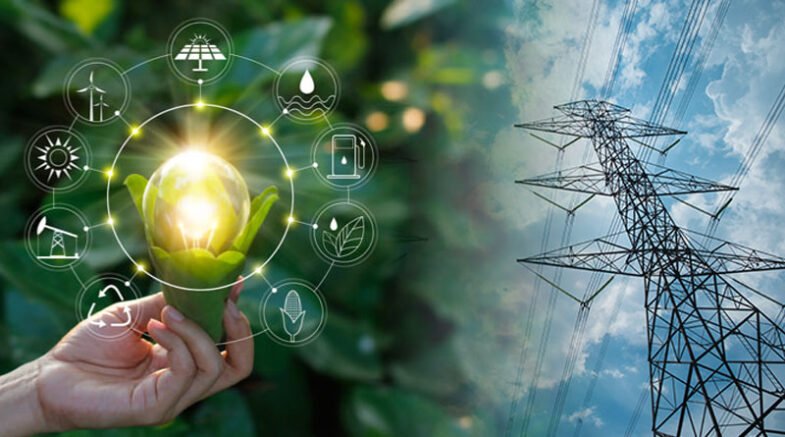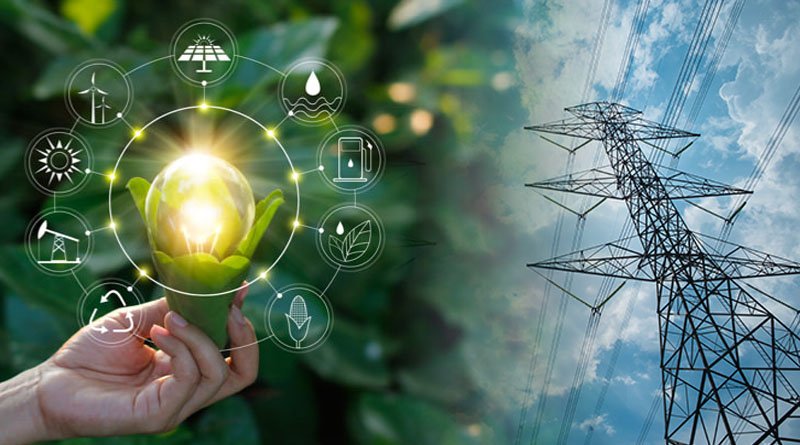Shah Jahan Mirza reaffirmed the government’s commitment to reducing its reliance on fossil fuels and decarbonizing the power sector.

Officials and experts in the field of renewable energy reviewed and discussed the “2030 solar and wind roadmap for Pakistan” developed by the National Power Regulatory Authority (NEPRA) under its Indicative Generation Capacity Expansion Plan (IGCEP) 2022-31 in a global webinar jointly organised by Agora Energiewende, Germany, and Institute of Policy Studies (IPS).
Tobias März, a German climate activist and solar engineer affiliated with “8.2 Renewable Energy Experts,” Shah Jahan Mirza, CEO of the Alternative Energy Development Board (AEDB), Ali Zain Banatwala, deputy managing director of the National Transmission & Despatch Company (NTDC), Hassan Jafar Zaidi, CEO of Power Planners International (PPI), Naila Saleh, project manager of Agora Energiewende, and Lubna Riaz, researcher with the Institute for (IPS).
In the Alternative and Renewable Policy 2019, which aims to increase the renewable energy share to 30% by 2030, Shah Jahan Mirza reaffirmed the government’s commitment to reducing its reliance on fossil fuels and decarbonizing the power sector.
On a war footing, the government is driven to make the necessary transition to renewable energy sources. AEDB is dedicated to the timely execution of numerous mega-scale and distributed generation projects based on solar PV, he added.
Banatwala emphasised that the integration of renewable energy with the grid may present some issues with the system operations of the grid due to the intermittent nature. He shared the government’s vision to uptake the renewable energy share.
But, he added, the NTDC is doing its part by conducting a thorough analysis of the scenarios for the uptake of renewable energy and requiring that everyone work together to decarbonize the power sector as soon as possible.
The renewable energy specialists talked about the findings of an ambitious solar and wind roadmap of Pakistan carried out by “8.2 Renewable Energy Experts” and “Power Planners International,” which included suggestions for accelerating the development of wind and solar power beyond the governmental target adopted in the IGCEP.
Beyond IGCEP 2022 examines Pakistan’s 10-year plans for generation expansion and considers whether a more aggressive push for solar and wind energy (VRE) by 2030/31 would be feasible and advantageous.
According to the hourly dispatch for 2030, it can be deduced that by strengthening the existing grid infrastructure, it would be possible to increase the planned total VRE capacity by 2030 from 20 GW to 33 GW.
Additionally, this would result in a 50% reduction in overall emissions from energy production as well as a 15% reduction in average energy generation costs.
The study suggests including this more ambitious goal in the upcoming IGCEP (due in June 2023), pursuing a strategic improvement of the road network (including the HVDC link to Chaghai in Balochistan), placing a strong emphasis on the flexibility of operation of hydro and coal units, as well as implementing a strict and localised annual tender plan for auctioning off the 33 GW of solar and wind power over the next ten years.
According to Saleh, the rooftop solar system has a lot of potential in this situation and can provide sustainability, supply security, and affordability. Rooftop solar makes a strong case for Pakistan because it can help meet local demands, lessen the burden of capacity payments and transmission and distribution losses, and manage daytime peak loads.
She emphasised the necessity of creating appropriate organisational, business, and financial models that ensure a strong business case for all involved parties and address common issues in the socio-technical system, such as high upfront costs, issues with finance mobilisation, regulatory gaps, and a lack of supportive organisational, business, and financial models.
Mini- and micro-grids (MGs) are a practical option for electrification, as they act as a bridge between standalone and grid systems. By adding value creation to local goods and services, they can enhance rural livelihood and spur local business growth. RE-dominated MGs are also more financially feasible than traditional fossil-fuel-based generation.
